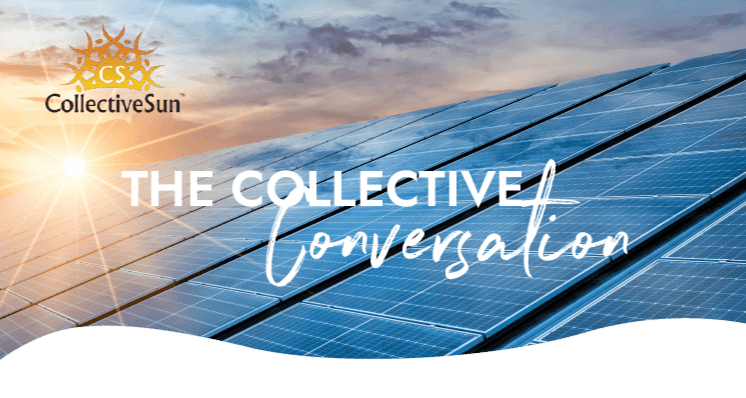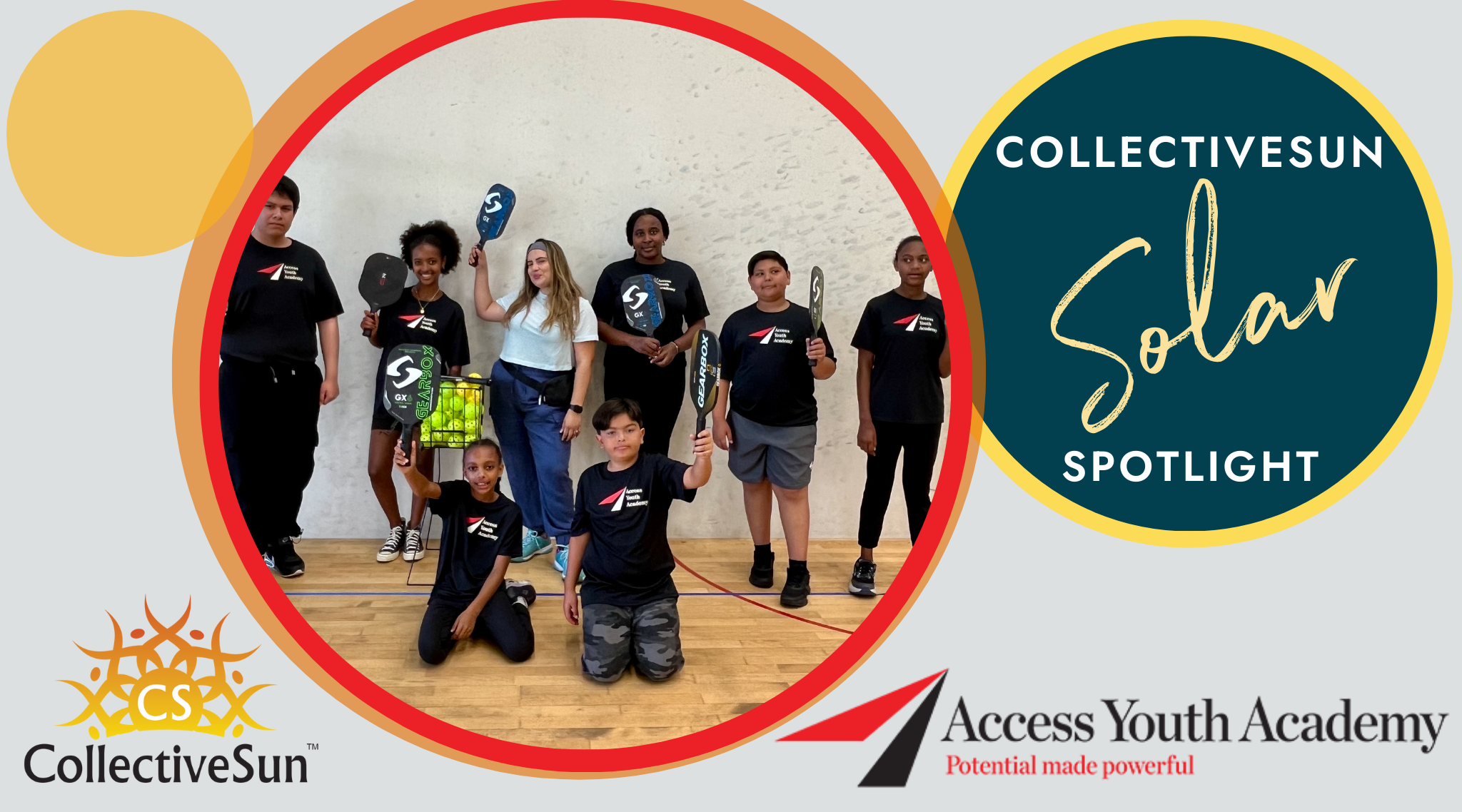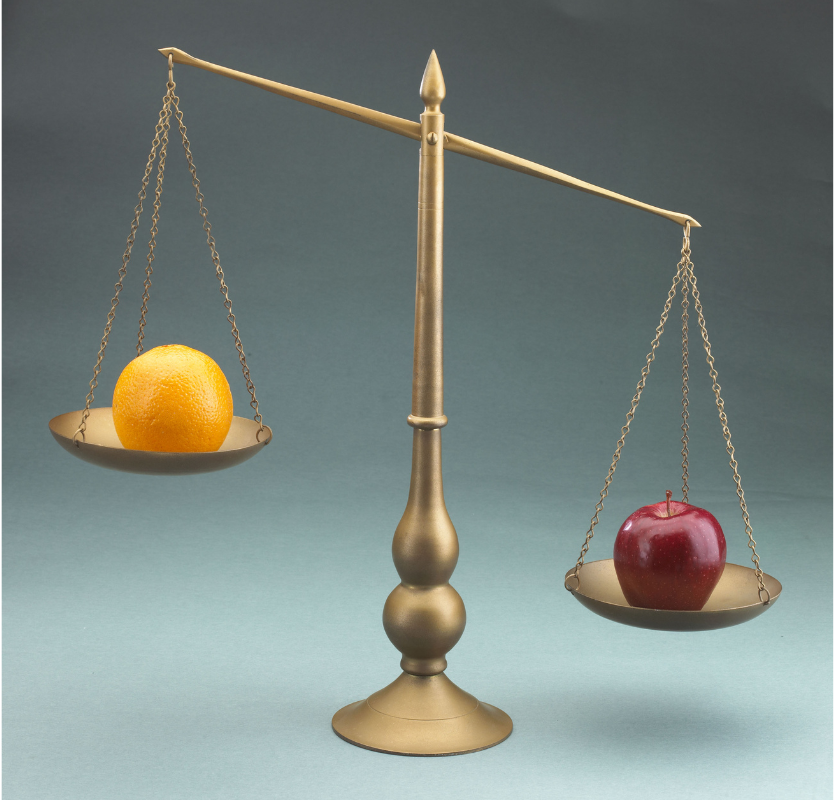
SOLAR SPOTLIGHT: INTERFAITH POWER & LIGHT DC MD NoVA
Interfaith Power and Light DC.MD.NoVA (IFPL DMV) shines as a beacon of hope and action within the realm of faith communities in the D.C., Maryland, and Northern Virginia area. Their mission transcends traditional worship, guiding congregations to green their operations through solar energy initiatives and advocating for robust climate policies.
This spotlight features a conversation with Joelle Novey, IFPL DMV’s Director, focusing on how partnerships like CollectiveSun empower congregations to harness solar power. It vividly demonstrates their commitment to a sustainable future, seamlessly integrating faith with ecological responsibility.
WE WOULD LIKE TO BEGIN BY LEARNING ABOUT YOUR ORGANIZATION’S STORY AND MISSION.
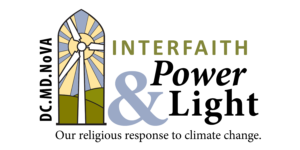 Interfaith Power and Light DC.MD.NoVA (IFPL DMV) is one of 40 active affiliates of the national Interfaith Power and Light network engaging faith communities responding to climate change. We do that by opening conversations about the climate crisis in faith communities, and inviting folks to reflect on how they are called to respond. We help congregations green their facilities — including going solar and helping their members shift to cleaner power — and mobilize faith voices to speak out for strong climate policy. We invite congregations and all faith traditions to fully live out their own values by taking action together to care for each other and all creation.
Interfaith Power and Light DC.MD.NoVA (IFPL DMV) is one of 40 active affiliates of the national Interfaith Power and Light network engaging faith communities responding to climate change. We do that by opening conversations about the climate crisis in faith communities, and inviting folks to reflect on how they are called to respond. We help congregations green their facilities — including going solar and helping their members shift to cleaner power — and mobilize faith voices to speak out for strong climate policy. We invite congregations and all faith traditions to fully live out their own values by taking action together to care for each other and all creation.
WHY IS IPL DMV FOCUSED ON CLEAN ENERGY?
We are coming to understand that burning fossil fuels is pouring heat-trapping climate pollution into our atmosphere, causing our Earth to warm, and causing great harm and suffering — to neighbors close to home, around the world, now and in the future, and all life on earth. All of our traditions call us to take responsibility for the impact of our choices and actions; moving away from combustion energy toward renewable and clean energy is a way for all of us to live out that mandate not to cause harm.
Congregations have a unique role to play in inspiring the transition to clean energy. Even though congregational projects for solar panels can be relatively small, their impact can be much bigger than the kilowatts installed. Congregations are beacons in their communities, and a tremendous number of people look to these institutions for guidance. Solar panels on a congregation can help us all envision a clean energy future.
One of the congregations that went solar in the D.C. area many years ago called the panels “our newest stained-glass windows,” because the panels tell their story to the world.
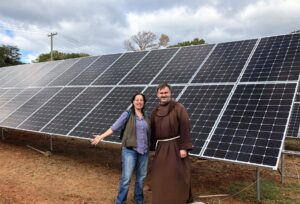
WHAT ARE YOUR SPECIFIC PROGRAMS AND SERVICES?
The hallmark of our work is in-person direct engagement on the ground in communities, opening conversations about the climate crisis and inviting people to reflect on how they want to respond in their faith communities.
Specifically, as the clean energy transition accelerates, we’re seeking to serve as a trusted guide for all the options that are available to our congregational facilities and their members, like electrification and going solar — especially since the passage of the Inflation Reduction Act.
We’ve found that the hardest part of putting up a solar project on a congregation is not the panels; it’s the people. It is fundamentally people work to get a congregation to go solar.
One thing that means is ensuring that the congregations are learning from each other as they navigate the space. We have a map on our website, ipldmv.org/solar, of all the solar congregations we know of in the region. You can click on this interactive map and see a picture of the project, who installed it, how many kilowatts it is, and any news coverage that tells the story more.
Below the map, we explain some of the most common financing mechanisms for congregations to go solar in our region. CollectiveSun offers a distinctive pathway that we love to mention, and many projects go solar through a power purchase agreement. That kind of financing is new to many congregations, and trust-building is needed for them to say yes. They can be skeptical; some of these power purchase agreements are so favorable that board members evaluating proposals may worry they’re missing something. Part of our service to the community is empowering congregations by explaining in plain language how solar developers are making money on the deals.
WHAT SHOULD PARTNERS WHO’VE NOT WORKED WITH IPL DMV KNOW ABOUT YOUR SERVICES AND THE BENEFIT TO THEM?
All of us have a role to play in the clean energy transition, and all of us have a community where we are the best person to open that conversation about climate change. For some of us, one of those communities is our congregation. I would encourage anyone who’s part of a congregation to know that you’re in extremely good company in caring about the climate and feeling called to respond in a way that lives out your values.
I would encourage those who are doing climate work inside of congregations to explore larger networks to be part of. That may be your state affiliate of Interfaith Power & Light, which you can find at https://interfaithpowerandlight.org/affiliates. Increasingly, every religious community has thought leaders who are reflecting on how their particular community is called to address the climate crisis, so you are not alone.
WHAT WOULD IPL DMV WANT PEOPLE TO KNOW THAT THEY MAY NOT KNOW ABOUT YOU?
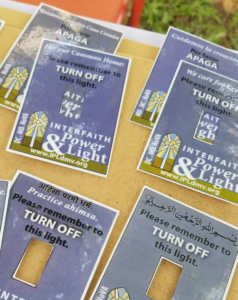
I want everyone to understand that making personal green choices is very meaningful, but that’s partly because it helps us imagine the world that we need to transform. When we say, “taking climate action,” we are not primarily talking about using reusable mugs at coffee hour and recycling and making sure there’s a garden behind the church — though all of those are wonderful. Even solar projects are ultimately a way of inclining our hearts toward the transformation we need, which will come through building a movement big enough to take on the corporate interests that have destroyed our climate without accountability and changing the laws to make it easier to make clean energy choices.
One of the things that we can see clearly on our map of solar congregations in the D.C. metro area is that within the D.C. city limits, where the solar renewable energy certificate (SREC) credits are the highest because of very strong solar laws, so many more congregations have gone solar. In Maryland it’s fewer, and in Virginia it’s the fewest. That is not because people in congregations in Virginia or Maryland are any less committed to clean energy; it’s that the context in which they’re making those choices is structured financially by the strength of the laws. Clean energy choices are a meeting of personal commitment with the environment we create through speaking out together for stronger laws.
HOW WOULD SOMEONE GET IN TOUCH WITH IPL DMV TO LEARN MORE ABOUT YOUR SERVICES?
If they’re in this region, they can contact me, Joelle, at [email protected]. In other regions they can find their local affiliate at https://interfaithpowerandlight.org/affiliates.
WHAT BROUGHT YOU TO IPL DMV?
I grew up in Baltimore, in the Jewish community. I always felt that religious ideas would be very transformative if we really took them seriously, but that we don’t always really live them out. Meanwhile, I got more and more concerned about the climate crisis after An Inconvenient Truth came out. Once you start thinking about the climate crisis, it’s hard to think about anything else.
I’ve loved working for fourteen years with this local Interfaith Power and Light to support inviting many communities — not just my own — to ask themselves what it would look like to live out their traditions in this time. If you ask that question, people know the answer. You help them open their hearts to the question.
I’m so grateful to get to be a climate activist in faith communities, because it can be a dispiriting business, but these people are trying to do the right thing. It’s so encouraging that people from different traditions, different neighborhoods, different backgrounds are joining together in this work. We didn’t choose to be in a climate crisis. But one of the blessings that we can find in this situation is that whatever differences we thought were important in the past, the climate crisis calls us to common purpose.
Let us introduce you to our Solar Spotlight guest, Joelle Novey:
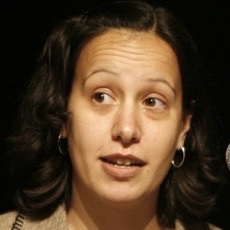 Joelle has served as IPL-DMV’s Director since the fall of 2009 and speaks widely on the role that faith communities can play in the climate movement. She grew up in Baltimore at Chizuk Amuno Congregation and is now active in several Jewish communities in the DC area, including Minyan Segulah, and serves on the advisory board of Dayenu: A Jewish Call to Climate Action.
Joelle has served as IPL-DMV’s Director since the fall of 2009 and speaks widely on the role that faith communities can play in the climate movement. She grew up in Baltimore at Chizuk Amuno Congregation and is now active in several Jewish communities in the DC area, including Minyan Segulah, and serves on the advisory board of Dayenu: A Jewish Call to Climate Action.
Joelle finds communities of faith and spirit to be among the most powerful places in the world to talk about the climate crisis and why it matters to each of us. She loves opening conversations with people of all ages and backgrounds about what is happening to our world, and how we are each called to protect the people, places, and creatures we love. She is grounded in her own Jewish tradition’s fierce spirit of intervention which demands that we act boldly even when we feel uncertain, if life may be at stake.
Prior to coming to IPL DMV, Joelle worked at Green America, where she screened applicants to the Green Business Network and wrote dozens of articles about greener living for the organization’s newsletter and magazine. For more than a year, she counseled hospital patients of all backgrounds and led interfaith worship services through a chaplain training program at Washington Hospital Center.
Joelle is a graduate of Harvard University where she received a BA in Social Studies, and completed the coursework for a minor in the Study of Religion. There she sang with two soulful singing groups, Mizmor Shir and the Kuumba Singers, and subsequently was a founding member of Songrise, DC’s all women’s social justice singing group.
Joelle is thrilled that the co-housing building she and her family live is both LEED Silver certified and going solar in 2023!
She is a recipient of:
- The Bethesda Magazine Green Award (2017)
- Sustainability Advocate of the Year from Pearlstone Center (2017)
- The Maryland Clean Energy Advocacy Award (2014)
- The Heschel Vision Award from Jews United for Justice (2008)
We extend our gratitude to Interfaith Power & Light DMV and Joelle for their unwavering commitment to environmental stewardship and community engagement. Their dedication to a sustainable future is inspiring and we are grateful for partnerships like these that empower us to make a meaningful difference for our planet’s future.



